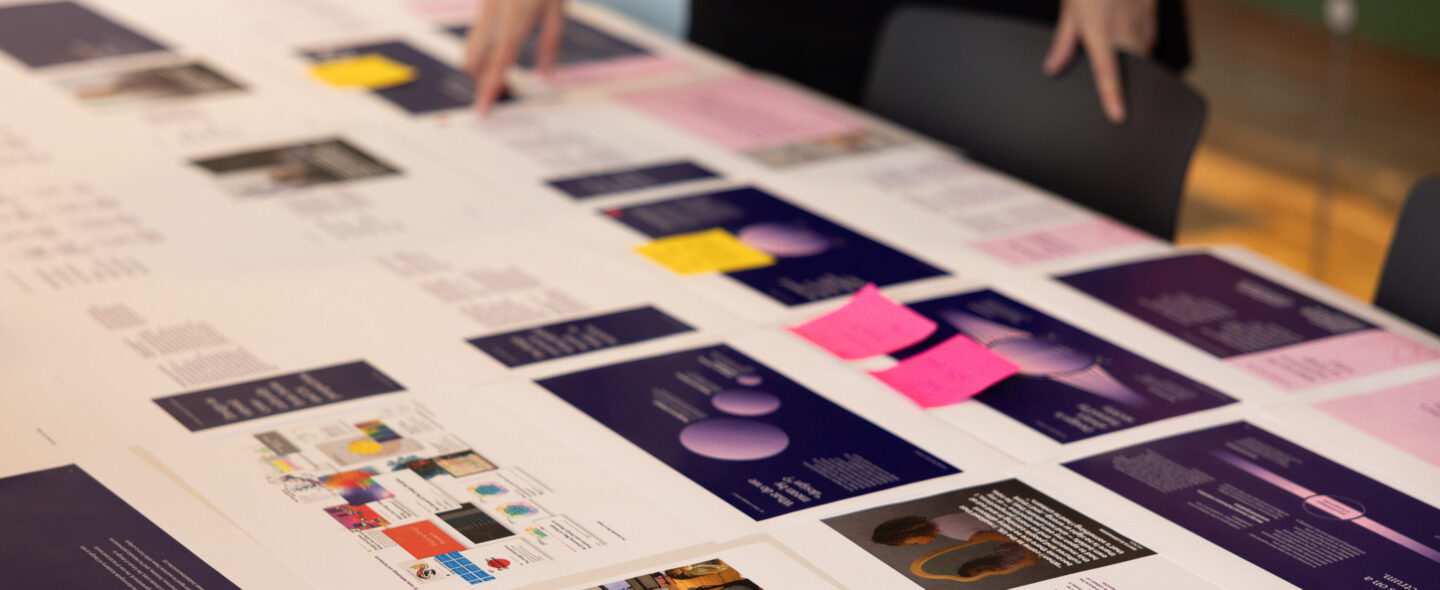
December 6, 2023 | Boston & New York
Design is undergoing a radical transformation. Generative AI is reshaping creativity, tech firms are cutting designer jobs, and environmental crises demand sustainable solutions. Traditional Western design canons and the “genius designer” archetype are being questioned, making way for more inclusive and interdisciplinary approaches.
In an attempt to clarify these trends and chart the emerging contours of the design landscape, Swissnex in Boston and New York partnered with Boston-based strategic design studio Other Tomorrows to survey 17 design leaders from across the US and Switzerland. The research results were first presented for comment last August to a group of Boston-based design thinkers, including members of the recently launched MIT Morningside Academy for Design. The annotated version of the presentation is now available to download as a report titled The Expanding Scope of Design. It is meant as a collage of distinct insights and observations, by no means a definitive analysis.
Supported by Swiss Arts Council Pro Helvetia, the survey found that design is viewed in many ways as a product, a process, or a movement that can have a more systemic impact for organizations and societies alike. Upon closer examination, it became clear that today’s designers see themselves as operating at multiple points on a spectrum between responding to present needs and anticipating better futures.
The investigation further revealed a wide range of forces driving change in design, which were grouped into seven themes. Four of these are already well established:
- Collective brilliance: the end of the “genius designer”
- The power of narrative: crafting the stories behind design
- The aesthetics of sustainability: questioning the quest for newness
- Beyond historical standards: undoing global sameness in design
Three of them are more recent and still emerging:
- Responsible design: advocating for independence
- Deceleration: redefining design’s role in a culture of impatience
- Creative intelligence: adapting to the age of artificial intelligence
As the conversations progressed, a larger question started to emerge: Are we approaching the end of design and its education as a discipline? If design is no longer a discrete discipline, what comes next? Responses generally fell into three categories:
- Design as an act of responsibility: design is responsible not only for dreaming up novel ideas but also for creating safe, inclusive, and equitable outcomes.
- Design as a shared language for collaboration: design has evolved into a shared language and process for cross-disciplinary collaboration.
- Design as a movement for societal change: design has transcended its role of creating products and evolved into a collective movement to anticipate and shape better futures.
We hope that this expanded definition of design can serve as an inspiration when thinking about the future of design and its education.